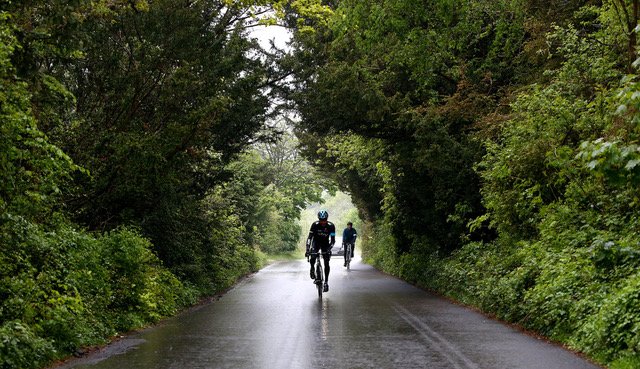Cycling at COP26
COP26 took place last October with the goal of achieving global net-zero by mid-century and keep 1.5C degrees within reach.
A record number of delegates attended, close to 40,000, making it the best attended COP in history. It tops both COP21 in Paris (30,372) and COP15 in Copenhagen (27,301). Making it clear to see that it’s a topic on everyone’s minds. Whilst there were some successful outcomes of the summit with progress made in a number of areas, there were also some major shortfalls in the plans. One of which includes addressing the growing emissions from transport which is continuing to rise.
Whilst COP26 ministers promised to come back in 2022 to submit stronger 2030 emissions reduction targets, it is worth highlighting one major factor where we can all play our part – increase cycling!
We’re not going to get to net-zero without dramatic changes to how we move about and changing the way you move about could be part of the solution.
Cycling was something that was touched on before the summit began. 70+ pro-cycling companies wrote an open letter about how cycling can reduce carbon omission, stating that cycling “represented one of humanities greatest hopes”. The aim, to push cycling and declare commitments to boost cycling levels at home and collectively commit to achieving a global target of higher cycling levels. Small swap, big impact!
There is a long list of benefits from switching from driving to cycling, the primary ones summarised below:
– It will reduce your carbon footprint! Driving a car emits about 271g CO2 per passenger-kilometre. Taking the bus will cut your emissions by more than half but to top it all, cycling has the biggest benefit. A 2021 study following 2,000 people in 7 European countries found that those who switch just one trip per day from driving to cycling, reduced their carbon footprint by about 0.5 tonnes over a year, representing a substantial share of average per capita CO2 emissions. Read further about this study here.
– Mental health benefits…exercise releases endorphins which can help to reduce anxiety, depression, and stress.
– Its good for the economy: Cyclists are better for the local and national economy than motorists. Cyclists are more likely to stop and shop, benefiting local retailers.
– Helps you stay healthy and fit. Cycling is a low impact, adaptable exercise that will improve your overall health and fitness.
– Saving time! If you work in a big city with good cycling infrastructure, cycling can often be a quicker way to get around than being stuck in traffic!
Get in touch today to see how we can help build a cycling strategy for you company – The race to net zero 2050 has begun!



